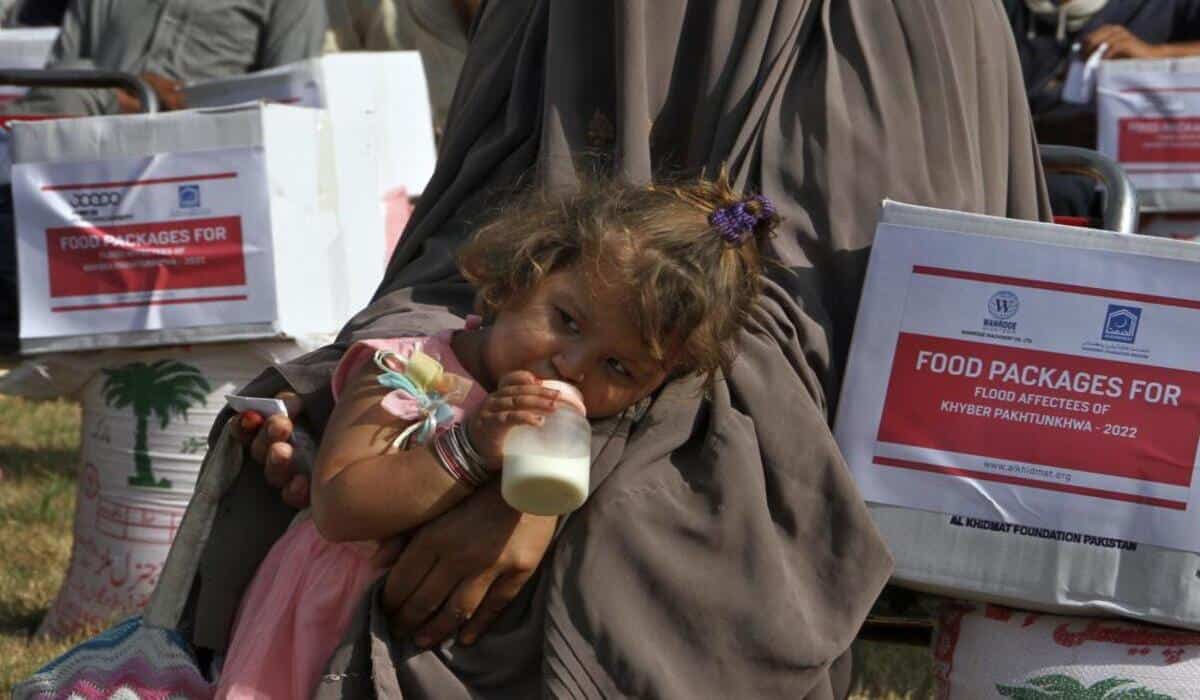
Islamabad: A new report has warned that half of Pakistan may face famine if food supplies from external sources are not arranged soon in the midst of the catastrophic flooding across the country.
The report compiled by agencies of the Ministry of National Food Security & Research said the mega floods have destroyed at least 70 per cent of Pakistan’s food basket, which means food must be imported soon to save the population from famine, reports Samaa TV.
The severity of the situation can be gauged from the fact that in Sindh and Balochistan, around 95 per cent of the crops were completely destroyed by the floods as per the initial assessment carried out by the government.
Meanwhile in Punjab and Khyber Pakhtunkhwa, around a third of crops were washed away by the floods.
As a result, around 40 million people face food scarcity in Pakistan and the situation demands for immediate measures to supply a whopping 14 million tonnes of food to end the shortage and save lives, according to food agencies, Samaa TV reported.
In the wake of the disaster and destruction of produce, the prices of fruits, vegetables, and other staples have also skyrocketed.
To restore the supply chain, the national exchequer would have to import essential food items such as wheat, pulses, spices, and sugar.
The report estimated that the import bill will witness a startling increase of nearly 44 per cent as the government ensures the food supply.
Roughly 7 million tons of wheat import will cost around $3.5 billion to the national exchequer.
Whereas, 600,000 tons of sugar, 100,000 tonnes of spices and 1 million tons of pulses and palm oil imports will also add to the cost, Samaa TV reported.
The food agencies have asked the government to undertake quick measures to support the flood-ravaged populace with essential supplies to avoid a massive humanitarian crisis.
